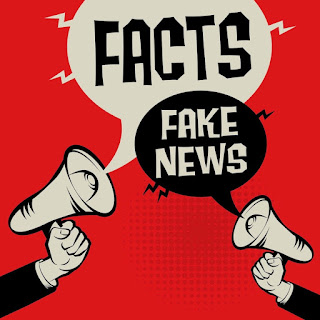
Recently, the city-state of Singapore recently adopted a law targeting online platforms that spread fake news, which provides users a warning when content is deemed fake or unreliable. For many, their rights are jeopardized by this new law and many could face a loss at freedom of expression.
On the other hand, the distinction between fake and reliable news is an interesting mechanism that changes our perspective on how we view multiple media platforms, such as Facebook, Twitter, Snapchat, as well as sources that are promoted or constantly popping up on each platform.
Fake news is hurting our democracy by impairing people's ability to address and fully discuss an issue with others because they may be only hearing from an opinion-based or one-sided source. In order to combat this issue, we must allow our opinions to be voiced, however, we need to accept diverse sources and perspectives on issues, so that we are able to politely discuss and debate these issues with others, regardless if we agree or disagree with the other person's beliefs.
Online communities, such as Facebook groups or followers of a specific page, enable us to reach out to others to encourage the use of fact checking and ensuring that what we find from sources is somewhat factual. That way, we are able to recognize what is actually happening before we can explain how we feel and are able to discuss everything with an open mind.
I think that the U.S. should not adopt similar legislation because it would be merely impossible to track down and fine every single source that is deemed fake news. I do think that encouragement of fact checking among sources that are deemed reliable and/or scholarly would enable people to meet in the middle of both fact and opinion. The idea of freedom of expression should support what we think and how we feel about current events and issues.
If we are being punished for what we say or think, then there is no way to educate and encourage us to find facts or sources that could easily broaden our horizons on issues while enabling us to expand and formulate our own opinions.
The following article from Tacoma Community College has an insightful take on how to check for facts, bias and fake news. I would highly recommend this to anyone to know the difference, as well as how to carefully think before you post.
https://tacomacc.libguides.com/c.php?g=599051&p=4147190
Comments
Post a Comment